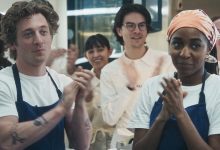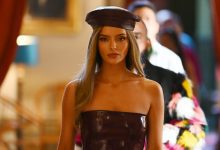‘Twisted Tale of Amanda Knox’ Star on Raffaele Sollecito’s Response to Hulu Series and Being a “Plus One” to Your Own Murder Trial
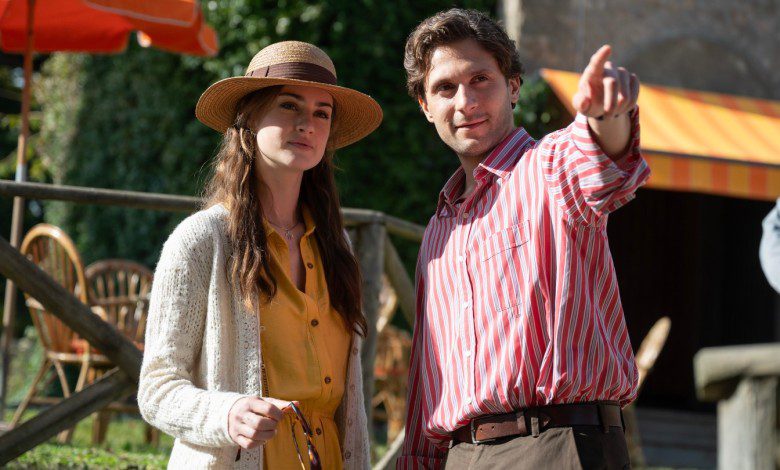
[This story contains spoilers from the season finale of The Twisted Tale of Amanda Knox.]
Giuseppe De Domenico learned a lot about Raffaele Sollecito when making the fifth episode of Hulu‘s The Twisted Tale of Amanda Knox. That episode, titled “Mr. Nobody,” continued the saga but from Raffaele’s point of view, a perspective that has been largely forgotten in the infamous story about Amanda Knox, which also includes her ex-boyfriend. The pair were convicted of murdering Knox’s roommate, Meredith Kercher, who was killed in 2007 in Italy, and then freed on appeal after an eight-year, three-trial legal battle to prove their innocence.
“I started building everything from the fifth episode,” De Domenico tells The Hollywood Reporter when Zooming in from Sicily, where he’s filming his next movie. “That was most important, what I discovered in that episode. Just a waterfall of information, and how being a fucking plus one to your own murder trial is something that moves you in a way you cannot accept. I love the name ‘Mr. Nobody’ for that episode.”
Now that the eight-episode limited series has concluded, De Domenico reveals his correspondence with the real Sollecito and revisits filming Raffaele and Amanda’s final conversation in the series finale with scene partner Grace Van Patten on a set that rebuilt the home in Perugia, Italy, where Kercher was murdered.
***
How much did you know about this story when you were cast?
I remember this story from when I was 14 years old. I remember these very young faces all around the newspapers and [TV] channels, and it was fighting every day — one day was good news, the next day was bad news. So when they asked me, I felt like, “This is a big story. It’s not just an Italian story, it’s an international story.” I immediately felt a little shadow of pressure in the air, which was just one side effect for these guys living through those crazy eight years of trials.
Did you have an opinion about Raffaele’s innocence or guilt before you started your research?
No. When it happened, I was pretty young, so I didn’t have any kind of opinion. When I got the audition, I saw that after the years of trials, they were innocent for a lot of reasons. For me, it was pretty obvious that it was an important story because people think they know the story, but actually they don’t. Many people have been texting me saying, “Did this really happen? Oh, my God, this is so crazy. How could it be?” I felt the same.
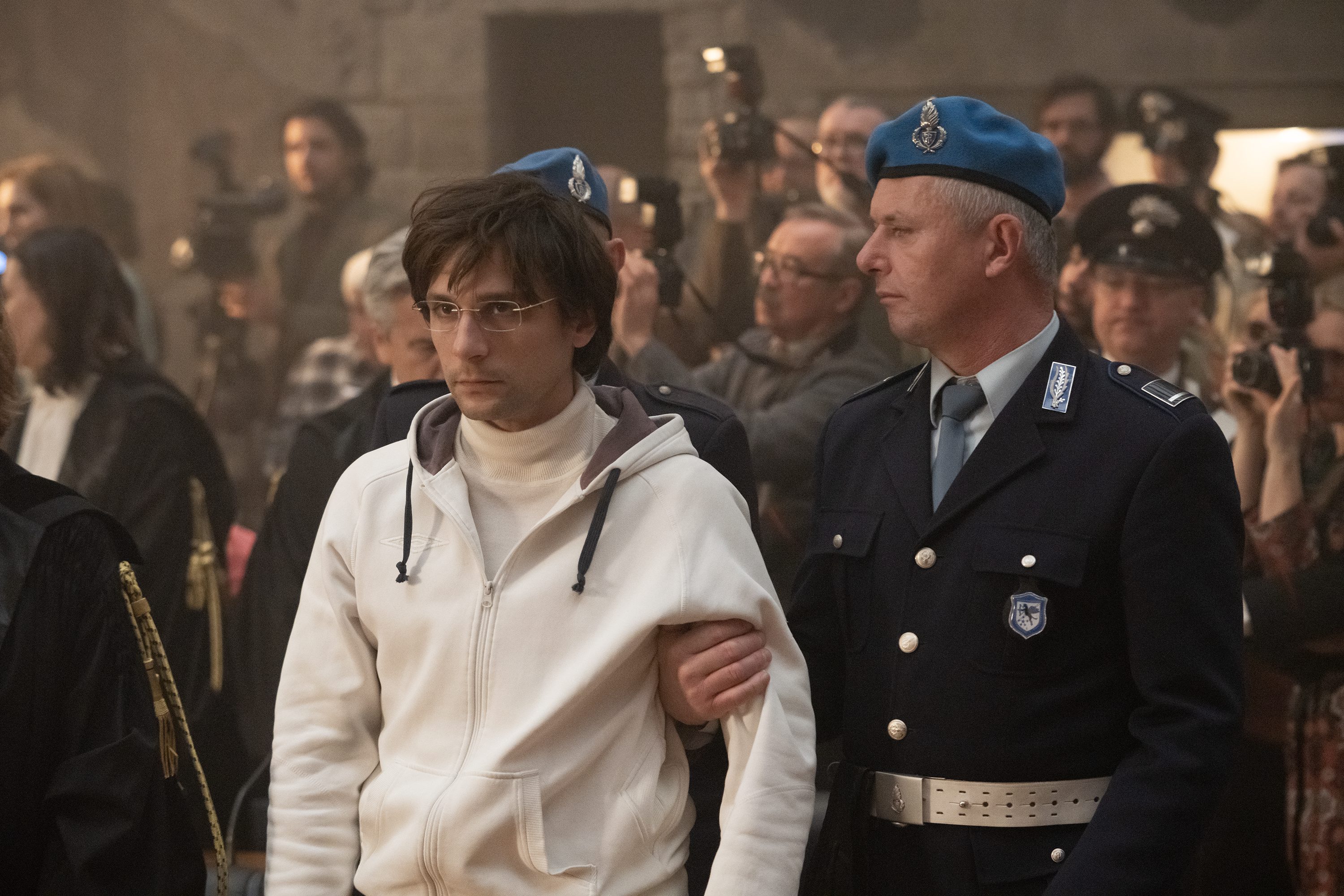
What appealed to you about telling Raffaele’s story?
When I started studying it, I remember that every single video I found of him on YouTube was of a guy who doesn’t express any emotions. Very plain, flat emotions. So my challenge was to have this emotional journey and give a personal touch to bring [emotion] to the light. That was pretty interesting and sometimes scary because I totally respect him, even [and especially] because I didn’t have the chance to work with him. I was afraid to go off road. That’s why I loved working with our amazing team, because the only way you can survive this kind of experience is when you trust your team.
What kind of research did you do?
Watching videos, reading his books twice. Then I started to record myself and have my friends ask me random questions where I had to answer like Raffaele. I was obsessed by the fact that I had to find a way to be like him. I found this way to move my body, and my face and the hands in a way that for me, at least, looked like him.
Did you try to speak with Raffaele?
I didn’t speak to him, but I wanted to, of course. When you have the chance to play a real person, you want to touch something true. At the end of shooting, I just wanted to reach him. I said, “I want to talk with you.” We had this video call, and I shared with him my very personal information — like how my ex-girlfriend’s story ends or my trauma with my parents, my deepest fears. I thought it was fair. I just told him, “Please, when you see the TV series, you have to be honest with me. I want an honest reaction, honest feedback.” So then when I met him in New York City last month [at the premiere event] and he was starting to thank me in front of people, that was, actually, my biggest reward.
You have shared that he told you that you gave the most accurate portrayal.
For now, yes! We will see in a couple of years, but for now, I’m closest to the truth.
He’s been described as the “oft-forgotten man” in this story, discarded by the media and society. So when you heard his response to the series, how did that make you feel?
We started noticing how the eyes of people around us, even during the premiere, were different before and after the screening. We felt it. He felt it. So then it’s starting to realize that my job is giving him the possibility to be seen in some new way, maybe for the first time. It’s so powerful.
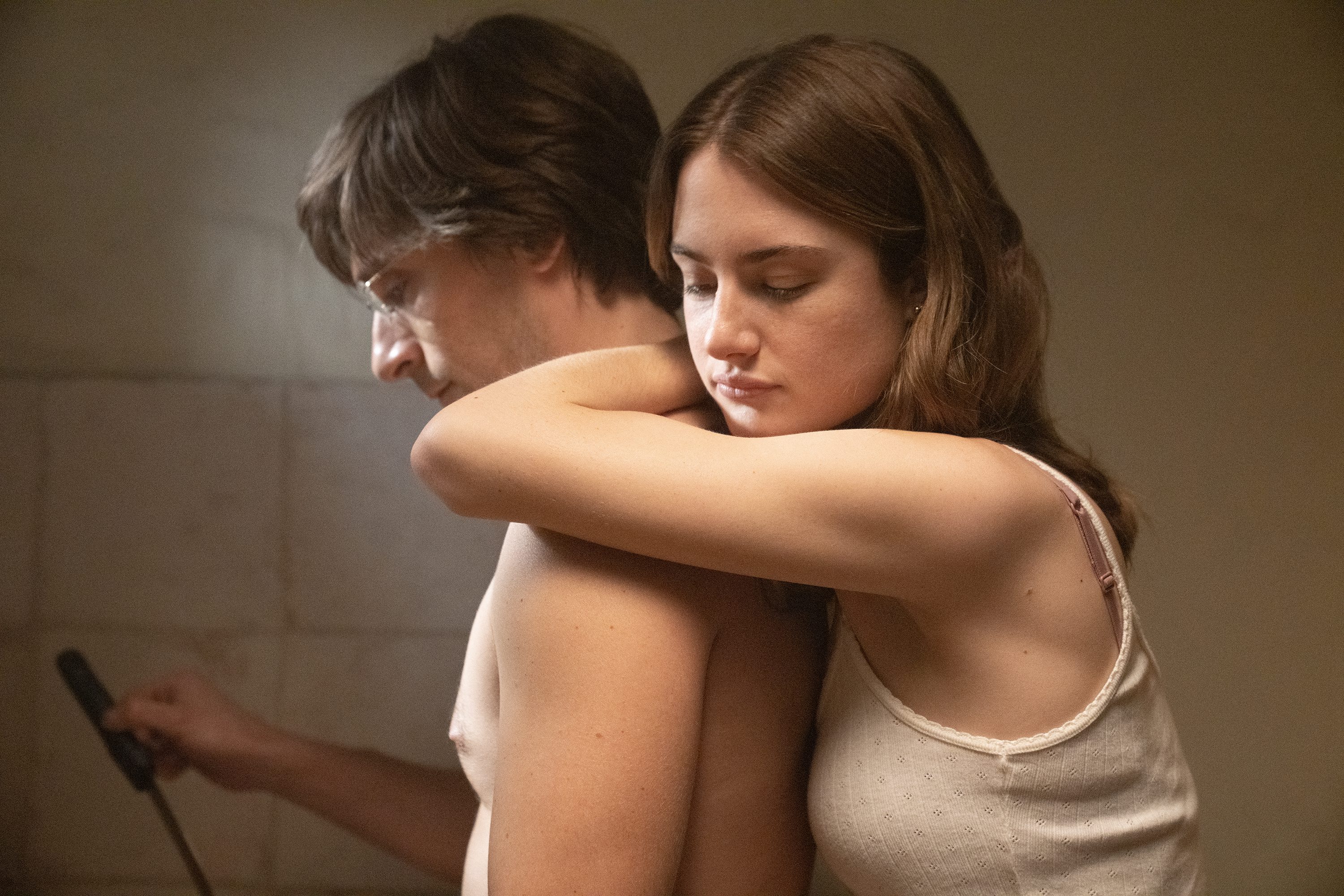
Episode five dove into his backstory. Was there anything in filming or researching for that episode that moved you, or struck you as something you didn’t know about him?
It was interesting to navigate this link between how we learn to love someone in our house and then when we start sharing that energy with someone else. It was pretty obvious in the way they delivered the script that the link was actually one of the most important things that moved Raffaele to say “we” after just one week of relations with Amanda. Because for him, it wasn’t just about Amanda. It was actually about his values, his personal story. So having this link and seeing that for the first time, it was like, “Yes, that’s the key.”
In the finale, which was co-written by Amanda Knox, we see this conversation between Raffaele and Amanda that makes it clear they have a pretty profound relationship after everything. What was it like filming that?
It was a pretty tough day. I was afraid I wouldn’t look old enough, because we were shooting so many different years in the same day, so it was pretty challenging, technically. You know when you have a very long text that you have to summarize into one page? In one single scene, we were telling from the beginning to the end how two beautiful human beings shared some terrible experiences together where life just gave them two different paths. But then, after years and years, they asked me and Grace to find that moment where we have to come back in some way, emotionally. When she asks me, “Do you regret meeting me?” That line fucking hit me in a way that only an amazing actress like Grace can. She delivered the moment for every single take. It was important.
It’s difficult to find the right words to describe something that really touches you in the deepest way. When we started doing the show, we didn’t know each other. We gave everything we had to get closer to something that is so precious. Because love declines in different ways, and we worked to find a real relationship, a real emotional link in that scene. We gave ourselves the space to leave something there for the last time. It was like a farewell, a goodbye, but also: “I will never forget you.”
With your viewpoint in Italy, how do you compare what happened to them in the media to how cases like theirs are handled in the global media today?
We are living in a world where misinformation, fake news or narratives are all around us. We are losing the sense of what’s real, what is false. But then there are some things we cannot discuss, where we have to trust the justice system. This is a very particular case where, after eight years of the most important professionals talking about this case, they agreed there were no elements for these two kids to stay in a jail. But then, simultaneously, the media covered just a single part of the story. So the public starts to believe the information they received. That’s the bias, that’s the prejudice.
So I hope with this series, people start to realize that especially when real people are involved — real emotion and real stories, even when the justice says, “These guys are innocent” — that we are influenced by the media. We should be much more aware that behind the camera, there are still people who have to manage their own network, their own interests, their own money. It’s not always about the truth.
The final shot of the series is in a confessional. The camera is turned away from the person who walks in to confess. Your showrunner K.J. Steinberg spoke about how the show deliberately leaves the person’s identity anonymous. What do you think about that final takeaway?
I was kind of taken aback by the fact that it wasn’t shown. I thought that was interesting how it was pushed back on us. There was a choice, yes.
What do you hope people are thinking after that final scene?
They decided to give the audience this sensation that it didn’t end there. It’s still going on. It’s something you should pay attention to, and you should ask yourself some questions. So it’s a pretty smart choice to, in one single take, give this feelings of: This is the entire story, but now, what’s your opinion? What do you think?
***
The Twisted Tale of Amanda Knox is now streaming all episodes on Hulu. Read THR’s cover story with Amanda Knox and producer Monica Lewinsky, and finale interviews with showrunner K.J. Steinberg and star Grace Van Patten.
Source: Hollywoodreporter
HiCelebNews online magazine publishes interesting content every day in the TV section of the entertainment category. Follow us to read the latest news.
Related Posts
- 'Situations'
Oldenburg International Film Festival
Share on Facebo…
- Amy Poehler Has No Clue Who the ‘SNL’ Newbies Are in Promo Ahead of Her Hosting Return
- ‘Dexter: Resurrection’ Officially Renewed for Season 2 (But ‘Original Sin’ Still Canceled)
- Dolly Parton Breaks Silence on Health Battles, Shoots Down Death Rumors: “I’m Not Ready to Die Yet”
- SCAD Savannah Film Fest: Spike Lee and Sydney Sweeney Among Seven in Second Wave of Honorees (Exclusive)

